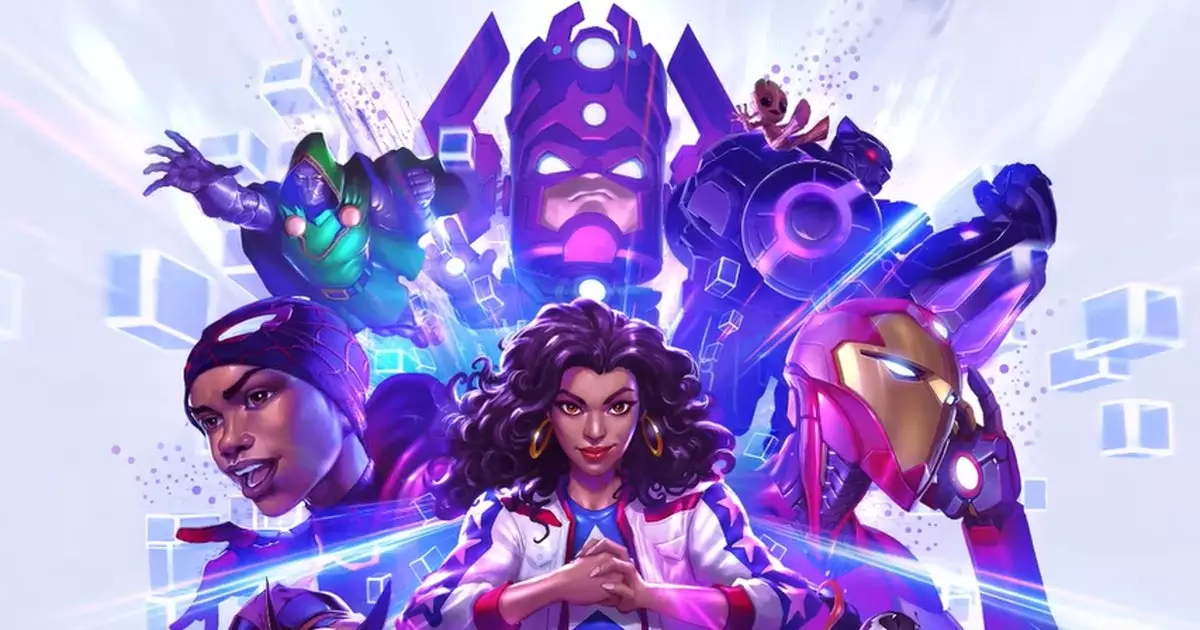The landscape of mobile gaming faced an unexpected jolt recently with the abrupt suspension of the superhero card game Marvel Snap in the United States. This disruption is a direct consequence of the U.S. government’s ongoing campaign against ByteDance, the Chinese corporation primarily recognized for its popular app, TikTok. The implications of this governmental stance extend beyond social media and are now firmly entwined with the user experiences in gaming. As millions of players experienced the loss of access without any prewarning, the incident reflects larger themes of digital governance and corporate accountability.
The underlying issue motivating this drastic action stems from the U.S. government’s concerns about national security. Lawmakers are increasingly wary about foreign entities, especially those connected to China, managing platforms that hold vast quantities of data on American citizens. TikTok, despite its entertainment value and extensive user base of 170 million in the U.S., is perceived as a potential conduit for the Chinese government’s unfettered access to private information. Naturally, the alarm bells rang louder when ByteDance’s ownership of Nuverse—the publisher of Marvel Snap—came into question within this context. The notion that a game could become collateral damage in a geopolitical tug-of-war is unsettling.
The sudden outage for Marvel Snap on January 18 was not just disruptive but bewildering for its player base. Reports indicate that while the game remains listed on platforms such as Steam, logging in became an impossibility for many. Players were left anxiously seeking resolutions, hinting at the emotional attachment and commitment they had towards the game. Developer Second Dinner’s swift communication promised that the game would be restored within 24 hours, but assurance cannot mask the uncertainty that players felt as they pondered whether their beloved card battles would be permanently affected. This episode has ignited discussions about the reliance of gamers on platforms controlled by larger entities with complex geopolitical ties.
Compounding the confusion is the backdrop of legal skirmishes between ByteDance and the U.S. government. Following legislative pushes that demand ByteDance divest its ownership of TikTok to a U.S.-based company, tensions heighten with every delay. The fallout from these political machinations injects more ambiguity into the future of not just Marvel Snap, but the broader gaming ecosystem that falls under ByteDance’s umbrella. Remarkably, other titles from Nuverse like Ragnarok X and Earth: Revival remain accessible in the U.S., further complicating the narrative of universal repercussions.
As the TikTok saga unfolds, the broader implications for the gaming industry and its communities cannot be overlooked. The tie between social media and gaming has only grown stronger, with platforms like TikTok playing a crucial role in shaping gaming culture, whether through the sharing of gameplay clips or the emergence of trends. The suspension led to an influx of content creators migrating their highlights onto other social platforms—a testament to the role of social interaction in a digital age. However, there is an evident concern that the interruptions could diminish the fervor of active gaming communities who may find their engagement waning in the face of such uncertainty. Content creators and streamers now navigate a precarious path while grappling with the consequences of higher-level disputes.
Ultimately, the tempest surrounding Marvel Snap serves as a reflective case study on the complex interplay between corporate interests and governmental authority. It underscores a reality where digital platforms can be upended not merely by the choices or errors of developers but also by the offline machinations of international relations. As gamers wait for Marvel Snap to reestablish its footing, they grapple with deeper questions about the stability of their beloved games in an increasingly politicized digital ecosystem. One can only hope for a return to normalcy in the gaming community, but for now, uncertainties loom, reminding us that the intersections of technology and policy will always demand our attention.

